E0127
Elastase from porcine pancreas
Type III, lyophilized powder, Protein 55-85 %, ≥4.0 units/mg protein
Synonym(s):
Elastase from hog pancreas, Pancreatopeptidase E
About This Item
Recommended Products
type
Type III
form
lyophilized powder
specific activity
≥4.0 units/mg protein
mol wt
25.9 kDa
composition
Protein, 55-85%
solubility
200 mM Tris HCl buffer, pH 8.8: soluble 1.0 mg/mL, clear
storage temp.
−20°C
Looking for similar products? Visit Product Comparison Guide
Application
Biochem/physiol Actions
Packaging
Quality
Unit Definition
Physical form
Preparation Note
Application
inhibitor
Signal Word
Danger
Hazard Statements
Precautionary Statements
Hazard Classifications
Eye Irrit. 2 - Resp. Sens. 1 - Skin Irrit. 2 - STOT SE 3
Target Organs
Respiratory system
Storage Class Code
11 - Combustible Solids
WGK
WGK 3
Flash Point(F)
Not applicable
Flash Point(C)
Not applicable
Choose from one of the most recent versions:
Already Own This Product?
Find documentation for the products that you have recently purchased in the Document Library.
Customers Also Viewed
Protocols
Enzymatic Assay of Elastase (EC 3.4.21.36), a continuous spectrophotometric rate determination.
Chromatograms
application for HPLCOur team of scientists has experience in all areas of research including Life Science, Material Science, Chemical Synthesis, Chromatography, Analytical and many others.
Contact Technical Service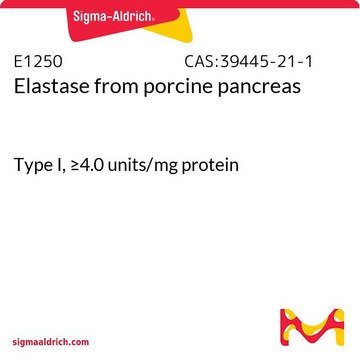
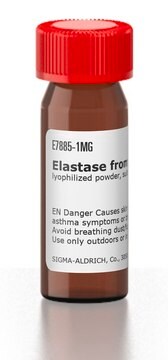
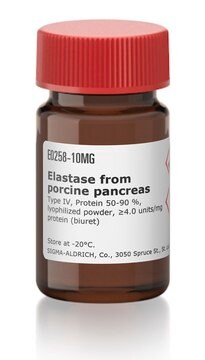
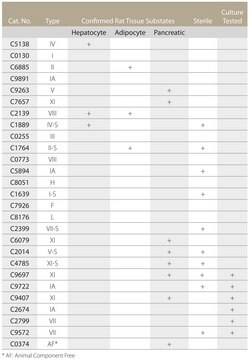


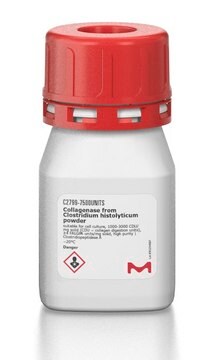

![N-[3-(2-Furyl)acryloyl]-Leu-Gly-Pro-Ala](/deepweb/assets/sigmaaldrich/product/structures/805/876/96b5fb57-71c8-4c6b-b5d2-fafe7374cd85/640/96b5fb57-71c8-4c6b-b5d2-fafe7374cd85.png)

